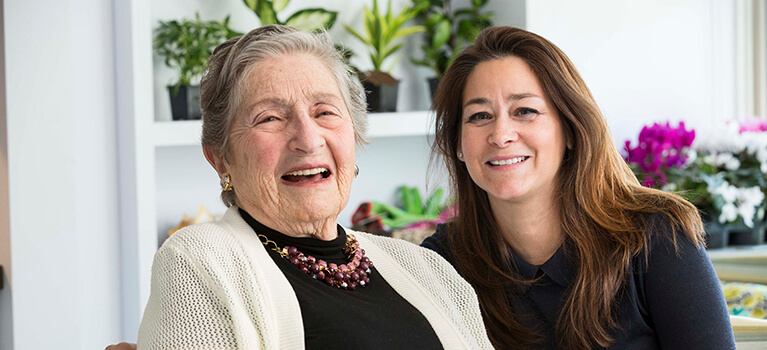
Blazing a New Trail
When Sally B. Fand, M.D., enrolled in the University of Chicago Medical School in 1948, she was one of only six women in her class. “There weren’t many women, but I always knew I wanted to be a physician,” Fand says. “I was lucky enough to do well in school and get into medical school.” Fand graduated and later completed her residency in internal medicine at the University of North Carolina. Now, after a successful career as a clinical investigator and 20 years as a family physician, Fand is making sure other young clinicians are afforded a similar opportunity of quality medical education.
In response to the outstanding care Fand received as a patient at Beth Israel Deaconess Medical Center, the Fand Family Foundation recently pledged $2 million to establish the David I. and Sally B. Fand Endowed Chair at BIDMC. Reed Drews, M.D., director of the Hematology-Oncology Fellowship Program and Fand’s physician, will be the first incumbent to the chair named after Fand and her late husband. An endowed BIDMC chair is an honorary position designed to foster pioneering work conducted by a member of the BIDMC community. The gift is also a testament to Sally and David’s influential clinical and academic careers in medicine and economics, respectively. “As I get older I think philanthropy is more important,” she says, recalling the clinical investigator position she held as a young physician at the Veteran’s Association in Dallas, which was partially supported by private funds. “When young clinicians come to BIDMC and learn in the midst of all these wonderful physicians, they need some help.”
For 20 years in his role as director of the division’s fellows, Drews has been dedicated to mentoring and training future generations of hematologists and medical oncologists. The support from this endowment will provide him, and future leaders in his role, the resources to educate young physicians to provide superior care for patients, like Fand. “I met some wonderful young clinicians at the hospital in all kinds of departments,” says Fand, who saw Drews during her successful fight with chronic lymphocytic leukemia. “The people in the program that I met are better because of Dr. Drews and that is a reflection of how he teaches them. I hope this gift allows him to create an even better learning environment for his fellows.”
The three-year Hematology-Oncology Fellowship Program welcomes six fellows per year and features a robust clinical and research component. Given the spectrum of patients Drews treats, the fellows have a broad exposure to malignant as well as non-malignant hematology. “Hematology-oncology is a tremendously exciting area,” says Drews, who has been in charge of the program since 1997. “There has been a lot of discovery, a lot of new drugs, and patients are living longer than they ever did before. Three years of training to learn that extensive body of knowledge sets the stage for lifelong learning. A goal of the fellowship program is to equip the fellows with the principles that are going to put them in good stead for a lifetime.”

